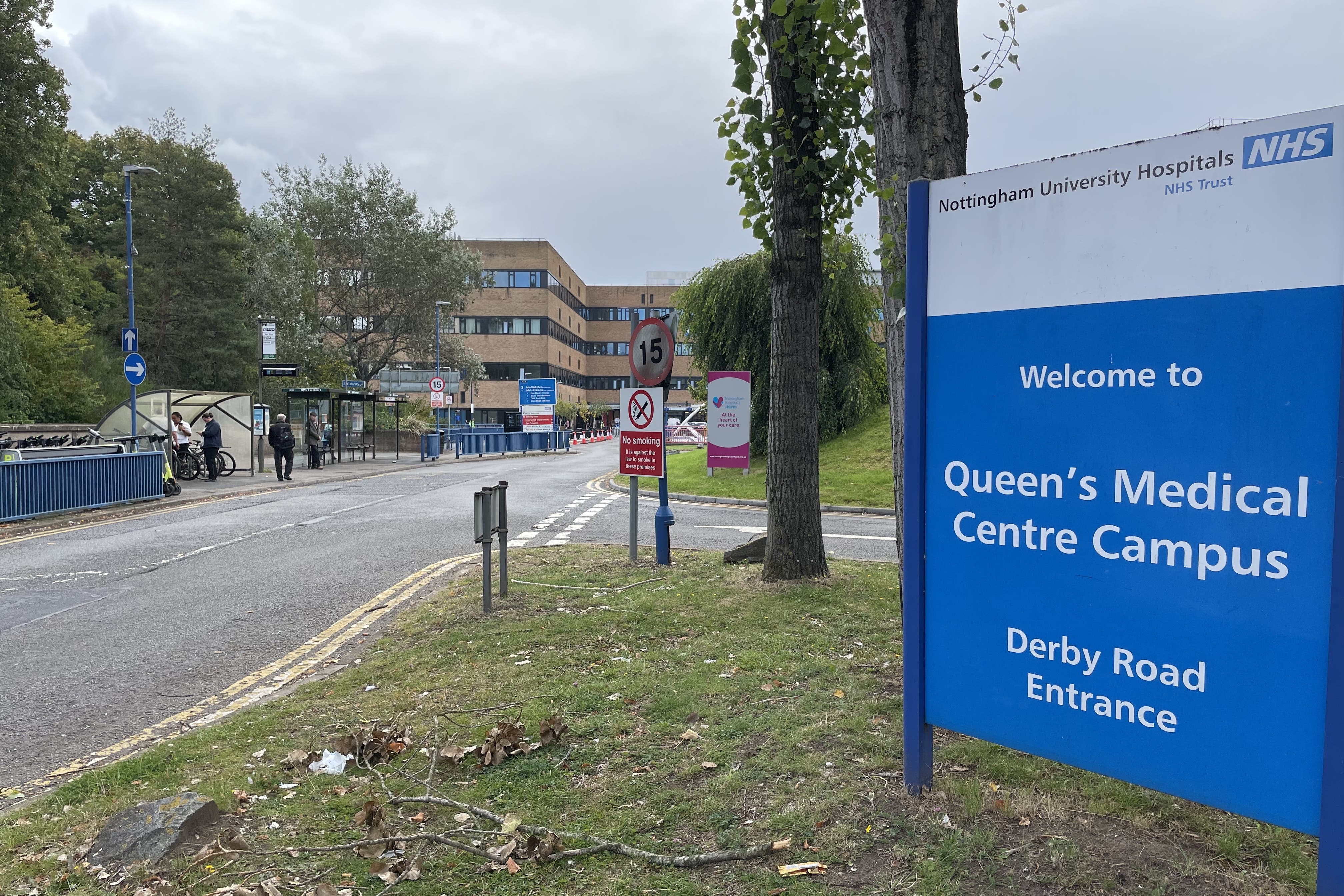Second NHS trust failed to send tens of thousands of patient and GP letters
The Nottingham University Hospitals NHS Trust said that no significant patient harm had been found but it would review its initial investigation.

A second NHS trust has been found to have failed to send tens of thousands of letters to patients and GPs.
Around 23,000 letters concerning risks to patients or containing actions for patients and GPs were not sent by the Nottingham University Hospitals NHS Trust (NUHT) over several years.
The documents were part of 411,000 which were left “unauthorised”, or unissued, on a computer system in 2017, including thousands more which should have been sent out but were later deemed to be of no risk to patient safety.
The investigation into the incident at the time found no significant patient harm, but NUHT has said it will review its inquiry.
I know that patients and the public will want to be assured that the investigation carried out in 2017 was thorough and robust. We will therefore undertake a review of the original investigation and take any further action as needed.
It comes just days after Newcastle Hospitals NHS Foundation Trust confirmed that around 24,000 documents, including discharge summaries and clinic letters, may not have been sent out over the last five years.
Anthony May, chief executive of NUHT, said: “An issue was identified in 2017 related to the authorisation and issuing of documents from our Medical Office system, which included letters to GPs amongst other documents.
“As a result, a serious incident was declared and a full investigation was undertaken to establish actions in line with the trust’s governance processes at the time.
“Following a clinically-led process, 22,963 documents related to GP correspondence were identified.
“GPs were informed, and we worked alongside representatives from primary care to agree which correspondence should be resent, which was completed.
“The Serious Incident Review concluded that no significant patient harm has been identified following the incident.
“The Trust took positive steps to prevent a similar incident from happening again, including improved communication and training with staff covering administrative processes and their use of the system, we also introduced prompts and safeguards into the system to prevent further occurrences.
“I know that patients and the public will want to be assured that the investigation carried out in 2017 was thorough and robust.
“We will therefore undertake a review of the original investigation and take any further action as needed.”
The issue was first reported by the BBC on Friday and is believed to have gone back as far as 2000 but was only uncovered when some letters were authorised by a staff member in 2017.
This led to one GP receiving several old letters, prompting them to contact the trust, which then launched an inquiry.
The PA news agency understands that the Medical Office system was used by staff to store documents, letter templates and notes, meaning many of the 411,000 documents were never intended to be distributed.
However, thousands were, including the 22,963 high-risk documents, which NUHT said were then reviewed further and any necessary actions taken.
These cases offer further evidence that investment in administrative staff and infrastructure is urgently needed
Meanwhile, Healthwatch, the body which collects patients’ experiences of health and social care, said investing in effective IT systems was “essential in ensuring patient safety”.
Chris McCann, communications and insight director at Healthwatch England, said: “Communication issues in healthcare don’t only frustrate patients but can also put their health at risk while placing additional pressures on every part of the NHS.
“The findings from Newcastle and Nottingham suggest that some people were left without vital test results and diagnoses, meaning they may have had to return to busy GP practices for answers they didn’t receive.
“Many letters related to the next steps for discharging patients, which we know can already be an unsettling process for some patients.”
He added: “These cases offer further evidence that investment in administrative staff and infrastructure is urgently needed.
“While NHS England is currently working to bring down hospital waiting times, they should invest in IT infrastructure, recruit more administrative staff to improve patient communication and accurately record treatment plan details.
“This will be essential in ensuring patient safety as well as helping rebuild people’s confidence that the NHS is there for them.”
An NHS England spokesperson said: “Timely, high-quality communications for patients and everyone working in the NHS remain of the utmost importance to ensure the best possible care and services for all.
“These communications systems are managed locally, and it is essential that all local NHS organisations ensure their processes for sending correspondence to patients and GPs are operating as they should.”
Bookmark popover
Removed from bookmarks